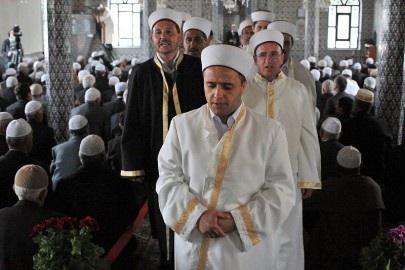Prime Minister Alexis Tsipras said his administration would pass legislation to allow Muslim litigants to opt for a Greek court to resolve family disputes, instead of appealing to Islamic jurists known as muftis.
For family law matters, Greek Muslims generally seek recourse to muftis for things like divorce, child custody and inheritance. Rights groups say it is a system that frequently discriminates against women.
“Over the next few days we will table an amendment in parliament making the mufti’s jurisdiction optional,” Tsipras said from Thrace, the poor, mostly rural northeastern region bordering Turkey, where the 110,000-strong Muslim minority mainly resides.
The issue has its origins in the period after World War I, and treaties between Greece and Turkey that followed the collapse of the Ottoman Empire. “As a European Union nation, this does not bestow honour upon us,” Tsipras said.
The move comes as the European Court of Human Rights (ECHR) is examining a complaint brought against Greece by a 67-year-old widow, Hatijah Molla Salli, who is locked in a heritage dispute with her late husband’s sisters.
When Salli appealed to Greek secular justice, she initially won her case. But the Greek supreme court in 2013 ruled that only a mufti had the power to resolve Muslim heritage rights. The ECHR is to discuss the case on December 6.
“The compulsory application of shariah is a clear violation of the minority’s rights to self-determination,” the Hellenic human rights league said in a statement. It added that Greece’s “sad privilege of being the sole (EU) country still employing religious law” was constantly leading to criticism from global rights organisations.
Tsipras said that under the amendment, which has not yet been tabled, litigants can still voluntarily agree to bring their dispute before a mufti for judgment. But if one of the two sides disagrees, the case will go to a secular court.
Source: greekreporter.com
Ask me anything
Explore related questions





